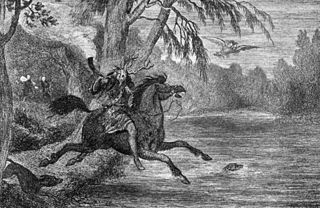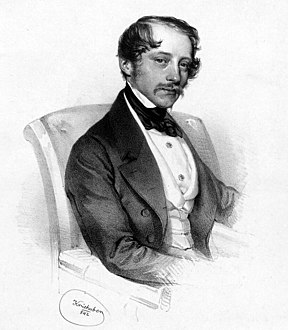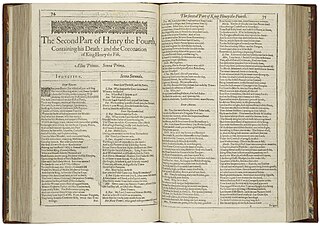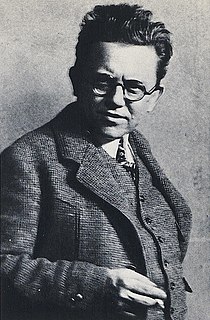
Sir John Falstaff is a fictional character who is mentioned in four plays by William Shakespeare and appears on stage in three of them. His significance as a fully developed character in Shakespeare is primarily formed in the plays Henry IV, Part 1 and Part 2, where he is a companion to Prince Hal, the future King Henry V. A notable eulogy for Falstaff is presented in Act II, Scene III of Henry V, where Falstaff does not appear as a character on stage, as enacted by Mistress Quickly in terms that some scholars have ascribed to Plato's description of the death of Socrates after drinking hemlock. By comparison, in The Merry Wives of Windsor, Falstaff is presented by Shakespeare as the buffoonish suitor of two married women.

Falstaff is a comic opera in three acts by the Italian composer Giuseppe Verdi. The libretto was adapted by Arrigo Boito from Shakespeare's The Merry Wives of Windsor and scenes from Henry IV, parts 1 and 2. The work premiered on 9 February 1893 at La Scala, Milan.

In English folklore, Herne the Hunter is a ghost associated with Windsor Forest and Great Park in the English county of Berkshire. He is said to naturally have antlers upon his head, ride a horse, torment cattle, and rattle chains. The earliest mention of Herne comes from William Shakespeare's 1597 play The Merry Wives of Windsor, and it is impossible to know how accurately or to what degree Shakespeare may have incorporated a real local legend into his work, though there have been several later attempts to connect Herne to historical figures, pagan deities, or ancient archetypes.

Carl Otto Ehrenfried Nicolai was a German composer, conductor, and one of the founders of the Vienna Philharmonic. Nicolai is best known for his operatic version of Shakespeare's comedy The Merry Wives of Windsor as Die lustigen Weiber von Windsor. In addition to five operas, Nicolai composed lieder, works for orchestra, chorus, ensemble, and solo instruments.

Henry IV, Part 2 is a history play by William Shakespeare believed to have been written between 1596 and 1599. It is the third part of a tetralogy, preceded by Richard II and Henry IV, Part 1 and succeeded by Henry V.
Alexandra Gilbreath is an English actress, born in Chalfont St Giles, Buckinghamshire and trained at the London Academy of Music and Dramatic Art.
Shakespeare by the Sea was a summer outdoor event held at Balmoral Beach in Sydney's northern suburbs, using a band rotunda as a backdrop, that ran in summer for twenty-five seasons, from 1987 to 2011.
Jeremy Sams is a British theatre director, writer, translator, orchestrator, musical director, film composer, and lyricist.
Julian Charles Becket Amyes, known as Julian Amyes, was a British film and television director and producer.

Falstaff, ossia Le tre burle is a dramma giocoso in two acts by Antonio Salieri, set to a libretto by Carlo Prospero Defranceschi after William Shakespeare's The Merry Wives of Windsor.
Georg Tressler was a Vienna-born German film actor and film director. Also known as George Tressler, Hans Tressler, Hans Dressler, Hans Georg Keil and Hans Sternbeck.

The Hudson Warehouse is a theatre company in New York City that presents classical plays that are accessible, affordable, and exciting to the public. They perform three outdoor plays in the summer months in Riverside Park and fall/winter productions at Goddard Riverside Bernie Wohl Center. Their mission is to bring arts for whom the arts aren't accessible and to this end, they perform in jails in collaboration with The New York Department of Corrections. So far, they have performed for inmates in Manhattan, Brooklyn, The Bronx, and at Rikers. Known as "The Other Shakespeare in the Park," the company was founded in 2004 by Nicholas Martin-Smith, who serves as its artistic director.
Georg Wildhagen is a German screenwriter and film director, born 15 September 1920, according to conflicting sources either in Hannover or in Hamburg.

William Wauer (1866–1962) was a German sculptor and film director of the silent era. In 1913 he co-directed the biopic Richard Wagner (film) (1913). In 1915 he directed The Tunnel the first adaptation of Bernhard Kellermann's science fiction novel Der Tunnel.
The Merry Wives of Windsor is a 1965 Austrian-British historical comedy film directed by Georg Tressler and starring Norman Foster, Colette Boky and Charles Igor Gorin.
This page is based on this
Wikipedia article Text is available under the
CC BY-SA 4.0 license; additional terms may apply.
Images, videos and audio are available under their respective licenses.









